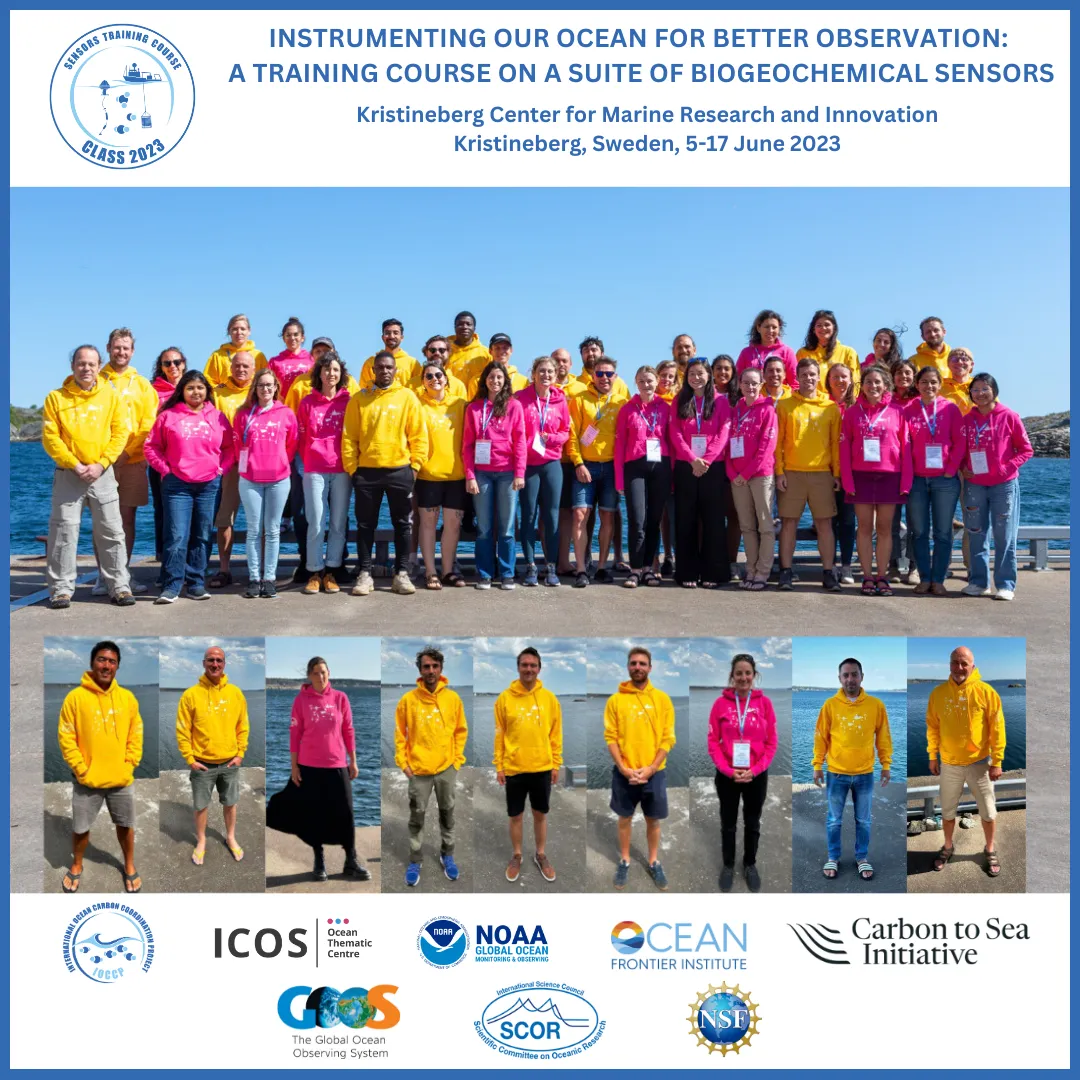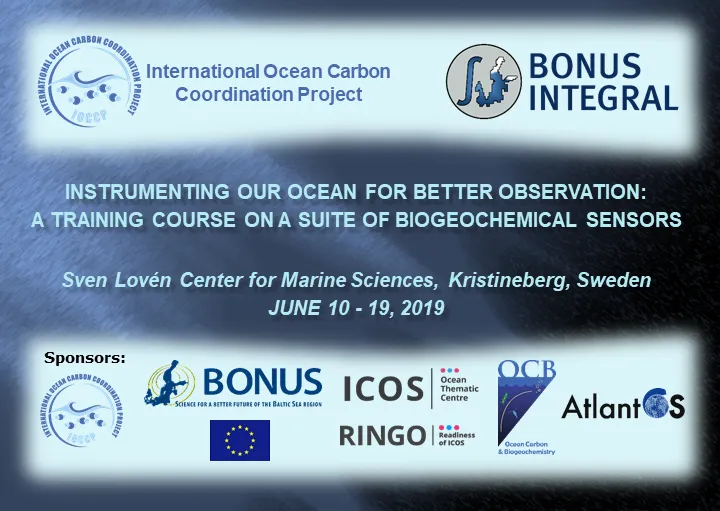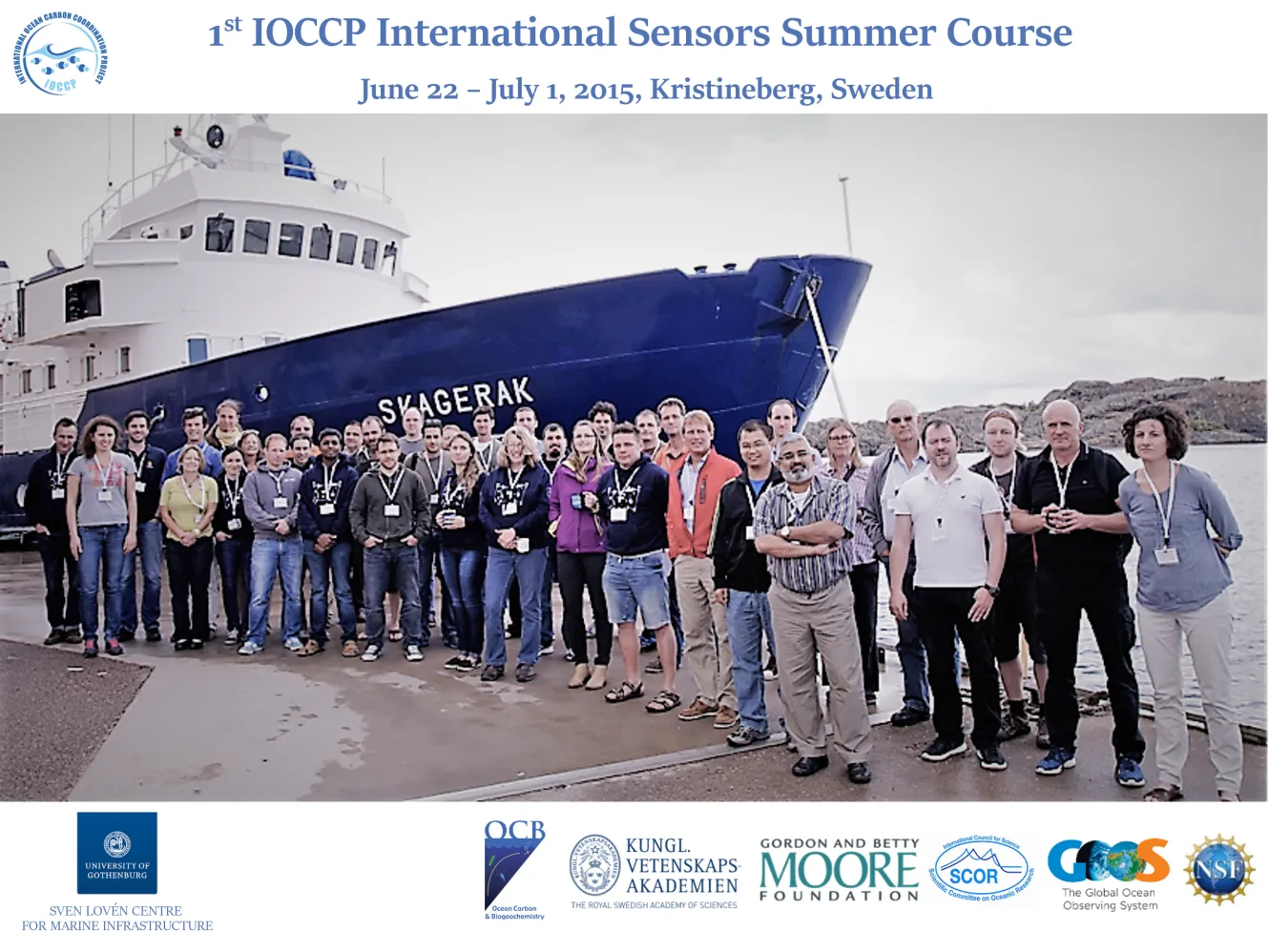Ocean technology has leapt to the aid of scientists by providing them with cost-effective sensors that can take autonomous measurements of essential ocean variables. Use of sensors on autonomous platforms is complementary to efforts carried out by traditional ship-based sampling, with the aim of improving data coverage worldwide. However, there remains a gap between the technology and the end-user. This gap is often born out of lack of training, resulting in a disconnect between data gathering and data quality assurance as required for various applications across the ocean domain. To help train new generations of marine biogeochemists in the appropriate use of a suite of biogeochemical sensors and to assure the best possible quality of the data produced, the IOCCP joins forces with several partners to organize a series of technical training workshops entitled "Instrumenting our ocean for better observation: a training course on a suite of biogeochemical sensors".
These workshops, each described in more detail below, provide trainees with lectures and hands-on experience across the whole spectrum of operations from deployment and interfacing, through troubleshooting and calibration, to data reduction, quality control and data management. In addition, participants are given an overview of the use of remote sensing, modelling and smart data extrapolation techniques to broaden their perspectives and effectively open new avenues for exciting research ideas and collaborations. While teaching established best practices for selected biogeochemical sensors and autonomous measurement systems, course instructors provide ample guidelines and practical tips regarding specific reporting requirements (e.g. meta-data, calibration, validation, error estimates, formats, etc.). Finally, each workshop provides a unique opportunity to form a tight and long-lasting network of biogeochemical sensor users, combining experts with beginners, coming from a wide range of countries on all continents and representing groups and communities in various phases of technical, logistical and financial development.




